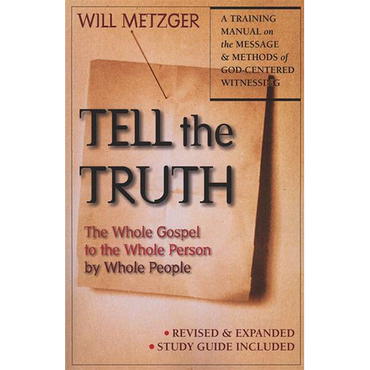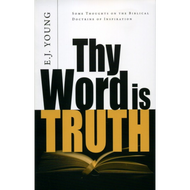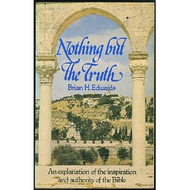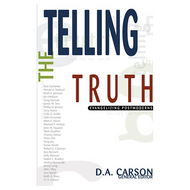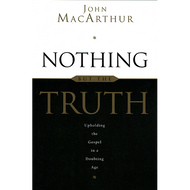Categories
Categories
Tell the Truth by Will Metzger (Paperback)
Product Description
About the Author
Publisher's Description
This revised and expanded version of the original guide published in 1981 is written to address the concern that many Christians, entrusted with the gospel message, have forgotten the message and their responsibility to accurately convey it. The recovery of a God-centered and grace-centered gospel is imperative, says Will Metzger. In the third edition of his critically-acclaimed training manual he expands on the topics of grace and worship. And he emphasizes the centrality of sovereign, saving grace that completely exalts God. In addition, he offers a narrative approach to witnessing with the story "Come Home," training materials for Christians who want to learn God-centered evangelism, and a study guide on evangelism suitable for individuals or groups.
Endorsement
In his introduction, Will Metzger gives the reader his rationale for writing the book. He wrote this book under the conviction that while the Church has a mandate to evangelize, many within the Church were not doing evangelizing at all, and those who were evangelizing were not doing it well. In response to this trend, Metzger intends this book to help Christians "tell the gospel in a way honoring to God, helpful to others and liberating for you."
Metzger's book is comprised of three parts, each focusing on the three elements listed in the subtitle of the book. The first section deals with the content of the `whole gospel.' Here, he begins by emphasizing that bearing witness is more than just giving one's testimony. There is a specific message to which one is bearing witness. This point leads Metzger to go on to explain what he perceives to be the essentials of the biblical gospel. Metzger says that any biblical gospel presentation must be God-centered, and include an explanation of: (1) "God - the Holy and Loving Creator," (2) "Man - the Sinful Creature," (3) "Christ - the Merciful Redeemer," and (4) "Our Necessary Response." He also believes that knowing accurately the content is more important than simply sharing with as many people as possible.
In section two, Metzger focuses on the idea of converting the whole person. The first chapter in this section explains his view of biblical conversion. Here, Metzger wants to convey the distinction between God's work, regeneration, and the individual's response, conversion. He goes to share his desire to see a better, biblical balance between the use of the emotions and the mind in evangelism. Metzger encourages those who present the gospel not to rely on an appeal to the emotions. The truth of the gospel should inform the mind and so move the emotions. He ends this section by reminding his readers that the will also plays a key role - the gospel is not only an offer of the forgiveness of sins, but a radical call to live a life that is obedient to the Lord.
The third and final section deals with the whole person (character and actions) who delivers the message of the gospel. Metzger begins by explaining that a good methodology is needed, but Christians must not be satisfied with simply having a biblical methodology - they must practice it! He then goes on to explain some ways to do that effectively. He makes the point that the presentation should be a personal one. That is to say that while the message does not change, how we present it to a person may change. One must show an interest in the person's life and move the conversation from the everyday to the eternal.
One of the strengths of Metzger's book is his desire to be thoroughly biblical in his basis for the methodology that he espouses. This is important today when much of what the church does is based, not on the Bible, but on apparent pragmatism. Metzger evaluates many approaches throughout the book and finds them wanting.
Another strength of the book comes in Metzger's distinction between the Christian's responsibility in evangelism and God's responsibility. While, believers have a clear mandate to make disciples by proclaiming the good news of Jesus Christ, they have no obligation to actually save the person. That is to say, they serve as the message-bearer, and God is the one who is responsible for illuminating the sinner's heart and allowing him or her to believe the gospel. This is, in many ways, a liberating truth. It means that one need not be consumed with feelings of guilt if a person does not accept the gospel. Instead, Christians should strive to be faithful to their call to share the gospel and leave the results of that proclamation to God.
A final strength of the book is its practicality. Not only is Metzger theologically precise, but he offers helpful discussion on the very basic ways in which one may begin a conversation that leads to the gospel, and how to do it well. He also provides thirty pages of Appendix material that ranges from listing some complementary approaches to evangelism to suggested schedules that lay out a plan for an evangelism-training course at a local church.
Metzger's book is perhaps one of the best books available on evangelism. This is evident in that he has avoided two classics pitfalls in evangelism. The first is that he has avoided the problem of allowing his theology to be disconnected from his practice. It is clear from his explanation of the gospel that Metzger holds a high view of God's sovereignty that is characteristic of the Reformed faith. Many others who claim to hold to such a faith often embrace evangelistic methodologies that are inconsistent with their theology. Again, Metzger's definition of the gospel, his understanding of how one goes about sharing the gospel, and his belief about how one actually receives salvation all reflect his theology beliefs. Second, Metzger has not, in any way, let his theology squelch his zeal for evangelism. Too many times, those who embrace a high view of God's sovereignty lack a passion for seeing the lost come to saving faith. Like the apostle Paul, Metzger's enthusiasm is driven by his view of God and the truths of the gospel. Many would do well to listen and learn from Metzger's book.
Through this book, Metzger has provided an excellent resource for pastors, missionaries, and all believers who heed the call of God to proclaim the good news of Jesus Christ to every tribe, language, and nation.
 Loading... Please wait...
Loading... Please wait... 
